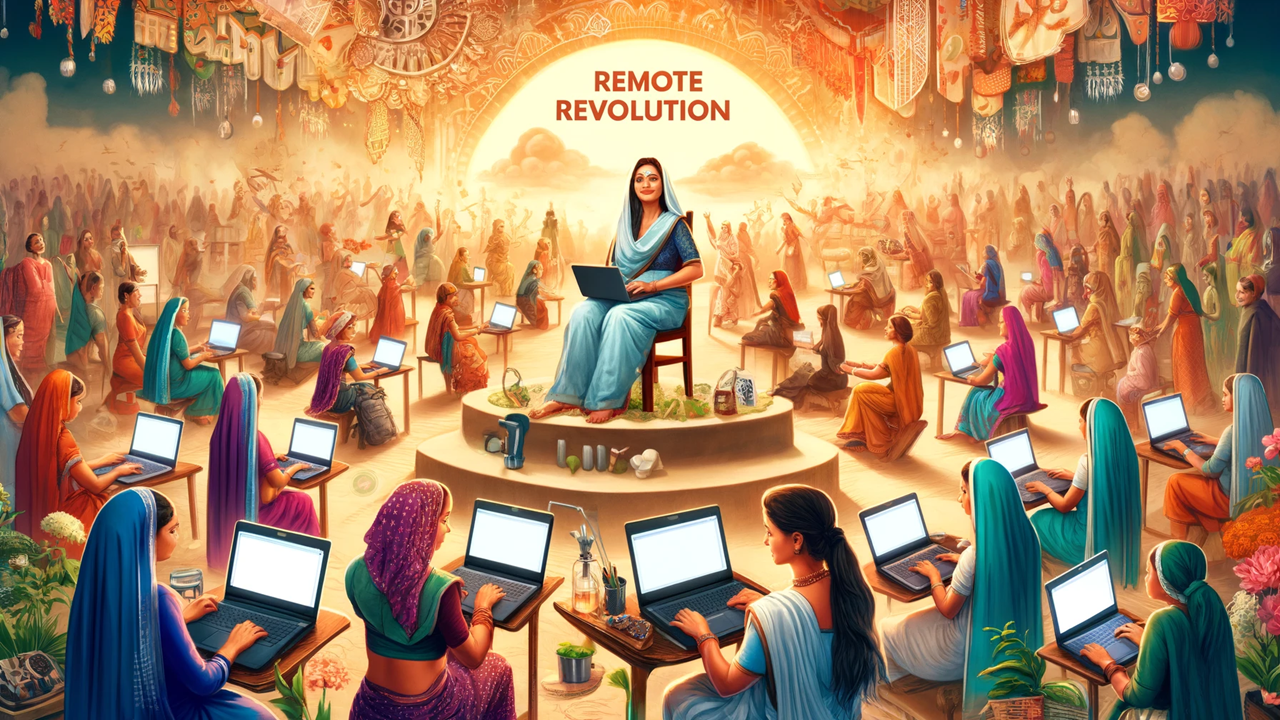Remote Revolution: Empowering Women in India's Labor Market
This article examines how remote work opportunities can significantly boost women's participation in India's labor market, particularly in traditional households. It explores the economic and social benefits of this shift, addresses the challenges to be overcome, and discusses the future directions of work-from-home trends in India.

As economies evolve and adapt to new technologies, the labor market in India is witnessing a transformative shift that could significantly enhance women's participation in the workforce. Recent studies are shedding light on how remote work opportunities are providing a viable pathway for greater economic engagement, particularly for women in traditional households. This exploration, titled "Remote Revolution: Empowering Women in India's Labor Market," delves into the dynamics of gender and work-from-home trends, revealing the potential for a more inclusive and diverse workforce.
The Current Landscape
Traditionally, India's labor market has been skewed with a pronounced gender disparity, particularly evident in rural and traditional households where cultural norms often restrict women's employment outside the home. However, the advent of digital technology and the rise of remote work are beginning to erode these barriers, presenting unique opportunities for women to participate more fully in the workforce.
Impact of Work-From-Home Opportunities
Work-from-home (WFH) opportunities have emerged as a game-changer in this context. With the ability to work remotely, women are now able to balance domestic responsibilities with professional aspirations, all from the comfort of their homes. This shift not only supports women's economic independence but also helps in redefining gender roles within traditional settings.
Economic Benefits
The economic benefits of increased female participation are manifold. Studies suggest that incorporating more women into the workforce can boost the GDP significantly. For businesses, having access to a broader talent pool leads to greater diversity of thought and innovation. Furthermore, remote work can lead to substantial cost savings for companies in terms of reduced office space and related expenses.
Social Implications
Beyond the economic impact, the social implications of this shift are profound. As more women earn their own income, their status within the family and community often rises, leading to greater decision-making power and autonomy. Additionally, this change can have a ripple effect on future generations, as children grow up seeing a more equitable model of parental roles.
Challenges to Overcome
Despite these advancements, there remain significant hurdles to overcome. Internet connectivity issues, lack of access to suitable technology, and inadequate digital literacy are substantial barriers that many women face, particularly in less urbanized areas. Additionally, there is a need for supportive workplace policies that address the specific challenges of remote work, such as flexible scheduling and mental health support.
Case Studies and Success Stories
Innovative programs and initiatives across India provide compelling case studies of the successful integration of women into the workforce through remote work. For instance, digital literacy campaigns aimed at women have equipped many with the necessary skills to take on remote jobs. Companies that have pioneered flexible work policies have also seen higher retention rates of female employees and improved job satisfaction.
Future Directions
Looking forward, it is clear that the potential for work-from-home to transform India's labor market is vast. As technology continues to advance and societal attitudes evolve, these opportunities will likely expand. However, for this potential to be fully realized, it will require concerted efforts from both the public and private sectors to address the existing challenges and to ensure that remote work is accessible and productive for all.
Conclusion
The rise of remote work in India presents a promising frontier for gender equality in the labor market. By breaking down traditional barriers and opening up new opportunities, work-from-home has the potential to be a major catalyst for social and economic change. Embracing this change can lead India towards a more inclusive and equitable future, where women's contributions to the economy are fully recognized and valued.










